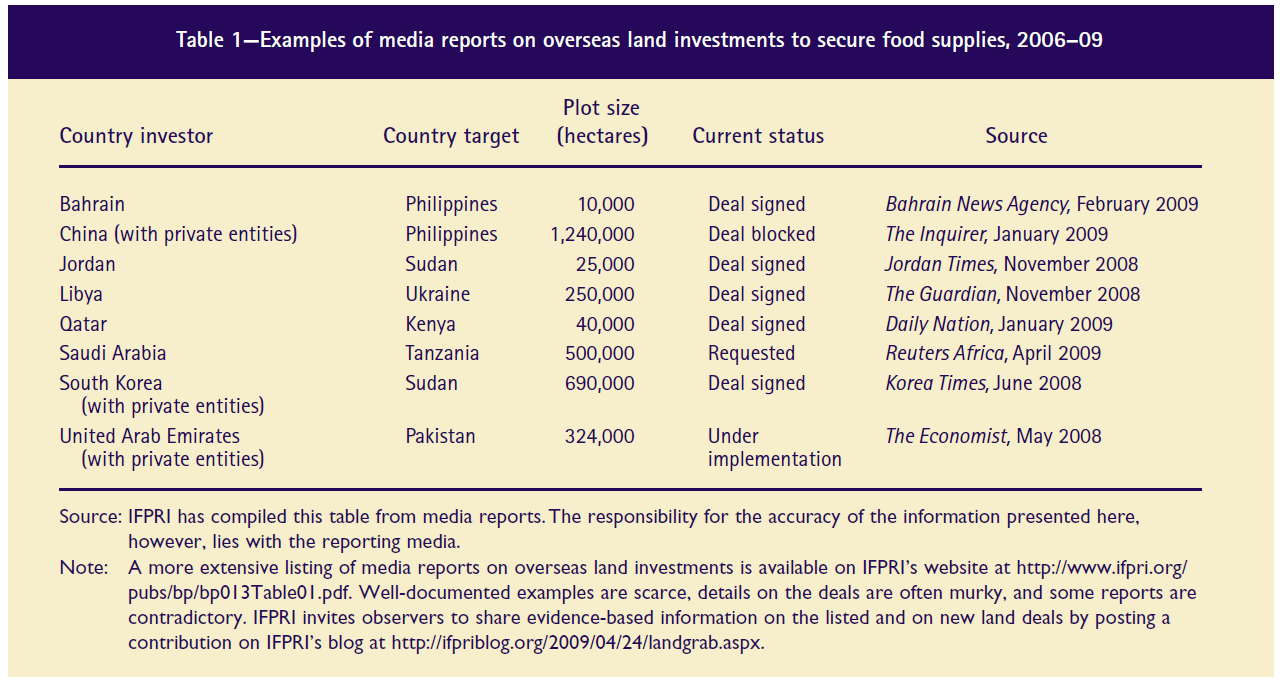One of the lingering effects of the food price crisis of 2007–08 on the world food system is the proliferating acquisition of farmland in developing countries by other countries seeking to ensure their food supplies. Increased pressures on natural resources, water scarcity, export restrictions imposed by major producers when food prices were high, and growing distrust in the functioning of regional and global markets have pushed countries short in land and water to find alternative means of producing food. These land acquisitions have the potential to inject much needed investment into agriculture and rural areas in poor developing countries, but they also raise concerns about the impacts on poor local people, who risk losing access to and control over land on which they depend. It is crucial to ensure that these land deals, and the environment within which they take place, are designed in ways that will reduce the threats and facilitate the opportunities for all parties involved.
Authors: Joachim von Braun and Ruth Meinzen-Dick
Published by: IFPRI Policy Brief (2009)
Land Grabbing by Foreign Investors in Developing Countries_IFPRI
